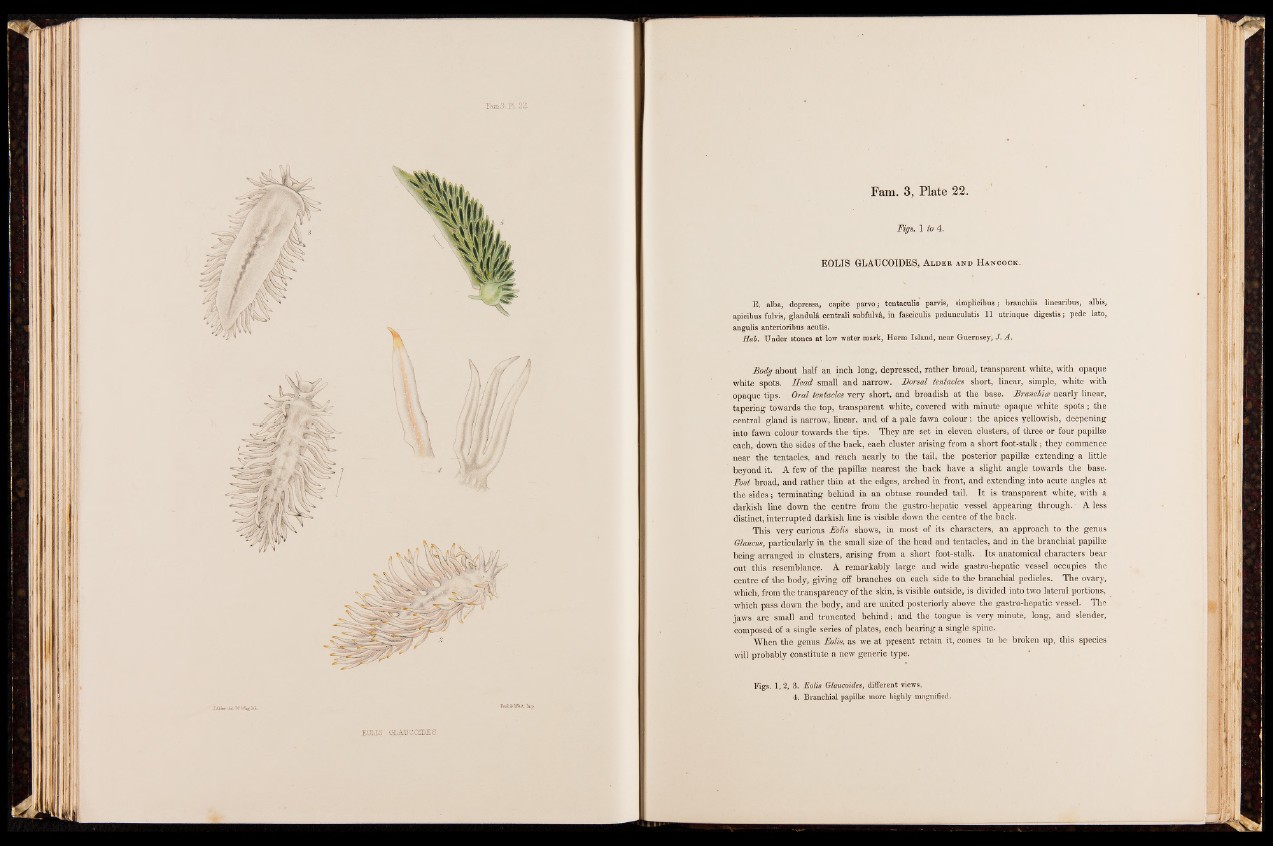
E'QLTS QjAUCOIDES.
Fam. 3, Plate 22.
Figs. X to 4.
EOLIS GLAUCOIDES, Alder and Hancock.
E. alba, depresBa, capite parvo; tentaculis parvis, simplicihus; branchiis linearibus, albis,
apicibus falvis, glandullt centrali suhfulvk, in fascicubs pednncnlatis 11 utrinque digestis; pede lato,
angulis anterioribus acutis.
Hub. Under stones at low water mark, Herm Island, near Guernsey, J. A.
Body about half an inch long, depressed, rather broad, transparent white, with opaque
white spots. Read small and narrow. Dorsal tentacles short, linear, simple, white with
opaque tips. Oral tentacles very short, and broadish at the base. Branchial nearly linear,
tapering towards the top, transparent white, covered with minute opaque white spots; the
central gland is narrow, linear, and of a pale fawn colour; the apices yellowish, deepening
into fawn colour towards the tips. They are set in eleven clusters, of three or four papilte
each, down the sides of the back, each cluster arising from a short foot-stalk; they commence
near the tentacles, and reach nearly to the tail, the posterior papilte extending a little
beyond it. A few of the papillae nearest the back have a slight angle towards the base.
Boot broad, and rather thin at the edges, arched in front, and extending into acute angles at
the sides; terminating behind in an obtuse rounded tail. It is transparent whit|i with a
darkish line down the centre from the gastro-hepatie vessel appearing through.- A less
distinct, interrupted darkish line is visible down the centre of the back.
This very curious Eolis shows, in most of its characters, an approach to the genus
Glaucus, particularly in the small size of the head and tentacles, and in the branchial papilte
being arranged in clusters, arising from a short foot-stalk. Its anatomical characters bear
out this resemblance. A remarkably large and wide gastro-hepatie vessel occupies the
centre of the body, giving off branches on each side to the branchial pedicles. The ovary,
which, from the transparency of the skin, is visible outside, is divided into two lateral portions,
which pass down the body, and are united posteriorly above the gastro-hepatie vessel. The
jaws are small and truncated behind; and the tongue is very minute, long, and slender,
composed of a single series of plates, each bearing a single spine.
When the genus Eolis, as we at present retain it, comes to be broken up, this species
will probably constitute a new generic type.
Figs. 1, 2, 3. Eolis Glaucoides, different views.
4. Branchial papillae more highly magnified.